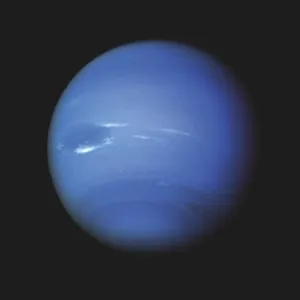On the night of 23 September 1846, the German astronomer Johann Galle noticed an object in the constellation Aquarius which didn’t appear on the latest star maps. Its disc-like appearance suggested it was a new planet – a conclusion confirmed the following night by its movement relative to the distant stars.
Galle had discovered Neptune, but it was no accident. He had been asked to examine that patch of the night sky by Urbain Le Verrier, a brilliant French theoretician who had been examining strange effects in the orbit of Uranus, and concluded it was being affected by an unseen planet.

But just as Galle and Le Verrier were being hailed for their discovery, British astronomers claimed a young Cambridge mathematician, John Couch Adams, had made similar calculations, and that a British astronomer had subsequently seen Neptune three times – but failed to recognise it. This attempt to grab some of the glory sparked an international row – which intensified when American astronomers argued that the predictions were faulty, and the discovery merely a “happy accident”.
Recent research has led historians to dismiss the British claim. But it’s now known Galle wasn’t the first to see Neptune: studies of Galileo’s notebooks show he unwittingly saw it as early as 1612.
Subscribe to BBC Focus magazine for fascinating new Q&As every month and follow @sciencefocusQA on Twitter for your daily dose of fun science facts.

